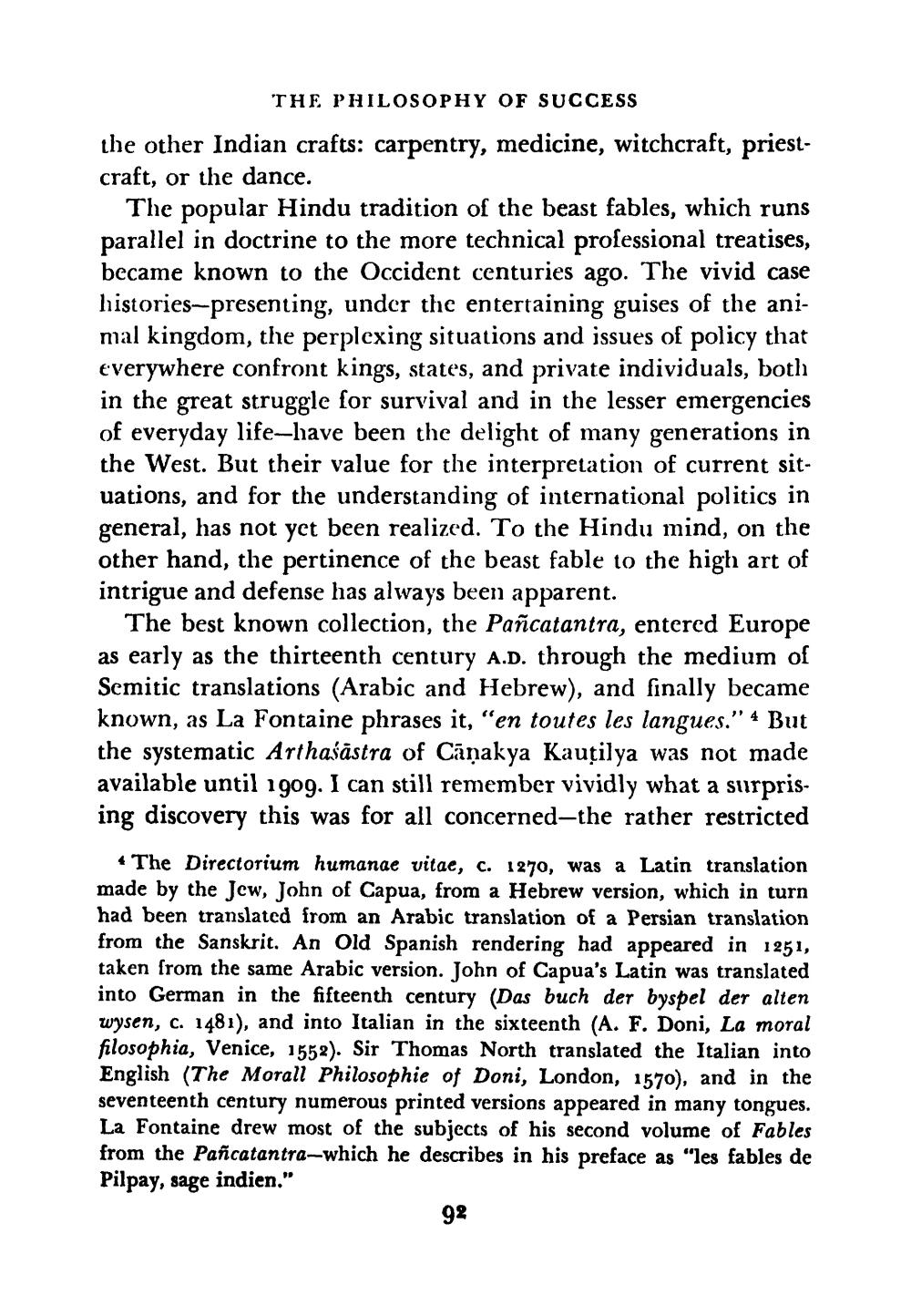________________
THE PHILOSOPHY OF SUCCESS the other Indian crafts: carpentry, medicine, witchcraft, priestcraft, or the dance.
The popular Hindu tradition of the beast fables, which runs parallel in doctrine to the more technical professional treatises, became known to the Occident centuries ago. The vivid case histories-presenting, under the entertaining guises of the animal kingdom, the perplexing situations and issues of policy that everywhere confront kings, states, and private individuals, both in the great struggle for survival and in the lesser emergencies of everyday life-have been the delight of many generations in the West. But their value for the interpretation of current situations, and for the understanding of international politics in general, has not yet been realized. To the Hindu mind, on the other hand, the pertinence of the beast fable to the high art of intrigue and defense has always been apparent.
The best known collection, the Pañcatantra, entered Europe as early as the thirteenth century A.D. through the medium of Semitic translations (Arabic and Hebrew), and finally became known, as La Fontaine phrases it, "en toutes les langues.” 4 But the systematic Arthaśāstra of Cāņakya Kauțilya was not made available until 1909. I can still remember vividly what a surprising discovery this was for all concerned-the rather restricted
The Directorium humanae vitae, c. 1270, was a Latin translation made by the Jcw, John of Capua, from a Hebrew version, which in turn had been translated from an Arabic translation of a Persian translation from the Sanskrit. An Old Spanish rendering had appeared in 1251, taken from the same Arabic version. John of Capua's Latin was translated into German in the fifteenth century (Das buch der byspel der alten wysen, c. 1481), and into Italian in the sixteenth (A. F. Doni, La moral filosophia, Venice, 1552). Sir Thomas North translated the Italian into English (The Morall Philosophie of Doni, London, 1570), and in the seventeenth century numerous printed versions appeared in many tongues. La Fontaine drew most of the subjects of his second volume of Fables from the Pañcatantra-which he describes in his preface as "les fables de Pilpay, sage indien."
92




